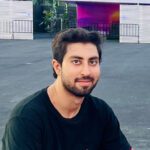In March this year, 60 students from the Curtin Medical School and 100 medicine students from the University of Notre Dame headed to Western Australia’s Wheatbelt region for a rural immersion program. Tess Corbett, who is currently in her second year of a Bachelor of Medicine, Bachelor of Surgery at Curtin, participated in the program, an experience she describes as positive, inspiring, motivating and, at times, shocking.
The Wheatbelt Medical Student Immersion Program (WBMSIP) gives students an insight into the joys and challenges of rural health through ‘hands-on’ learning experiences, while they live with host families and participate in local activities. The program reflects the Curtin Medical School’s vision of producing graduate doctors with the necessary knowledge, attitude and skills to work in areas of unmet need, particularly in rural and remote areas.
Tess was placed in the small town of Westonia, about 300 kilometres east of Perth, perhaps best known for its wide open spaces and beautiful wildflowers. Approximately 300 people live in the shire, with about 85 residents in the township.
“I travelled to Westonia with one other Curtin student and four Notre Dame postgraduate medical students. My experience in Westonia was overwhelmingly positive; I was able to meet so many wonderful people and see so many aspects of rural life that were unlike anything else I have experienced before. After my few days in the town, I felt like I became very involved in the community and I think I got a real taste of what it was like living in such a small town,” Tess says.
“One of the best parts of the trip was staying with my billet family. Both myself and my student partner became very attached to our ‘parents’ and we still regularly contact them and intend on visiting one day soon.”

Commitment and passion shore up healthcare deficits
According to a 2016 report by the Australian Medical Association, AMA Plan for better health care for regional rural and remote Australia, Australians living in rural and remote areas are at a distinct disadvantage when trying to access appropriate healthcare.
[They] often struggle to access health services that urban Australians would see as a basic right. These inequalities mean that they have lower life expectancy, worse outcomes on leading indicators of health, and poorer access to care compared to people in major cities. Death rates in regional, rural, and remote areas are higher than in major cities, and the rates increase in line with degrees of remoteness. (AMA Plan for better health care for regional rural and remote Australia.)
This ‘rural disadvantage’ was something Tess experienced firsthand during her placement. Although raised in Sydney, she routinely travelled to rural New South Wales to see family throughout her childhood, and she found there was a stark difference between country NSW and rural WA. She was, in equal measure, shocked by the lack of healthcare services available to rural residents, and inspired by the commitment and passion of the healthcare workers she met during her placement.
“Having grown up with parents from rural New South Wales and regularly visiting my family in the country, the experiences I had in Westonia were not out of the ordinary for me. However, in my time in the community I noticed that my experience of rural NSW was vastly different to rural WA, and I initially felt somewhat ignorant to the issues of living in such an isolated town,” Tess says.
“The disparity in access to health services between Perth and Westonia was far larger than I had anticipated and, looking back, before the trip I had no idea of the level of healthcare deficit that rural towns in Western Australia experience,” Tess says.
“The worst part of the trip, aside from having to leave Westonia at the end, was the day trip to Merredin. We visited the hospital, primary school and St John Ambulance precinct. I found it quite frustrating to see the lack of healthcare provided, and also the poor amount of support provided to the health workers.
“What shocked me was that the ambulance officers are entirely volunteers and have to balance other jobs and family commitments without receiving any financial support for their efforts. On the other hand, the passion and dedication these healthcare workers have for providing high quality care to the people of their community is inspiring and infectious.”

FIFO GPs and the realities of rural healthcare
Many regional and remote towns, including Westonia, have fly in/fly out (FIFO) healthcare workers who are in-residence for short periods of time to service the health needs of the local population. The WBMSIP offers students the opportunity to spend time in clinical practice with General Practitioners (GPs), an experience Tess, who spent a day with Dr Olga Ward, found illuminating and invaluable.
“When we visited Westonia, I had very limited experience in clinical practice, however after spending the day with their FIFO GP, rural healthcare seems like an extremely diverse, challenging and rewarding career,” Tess says.
“Spending a day with Dr Ward was incredible; she made a real effort to show us a variety of things she gets to do as the FIFO GP in Westonia. We got to watch and perform an ultrasound on a pregnant patient, sit in on two telehealth consultations, watch biopsies and sutures and hear from the wife of a cancer patient.”
Tess’s experience with Dr Ward highlighted some of the key personal and professional attributes that GP’s, who are working in an isolated rural settings, require.
“What stood out the most was the need for the local doctor to be a ‘Jack of all Trades’ with a versatile and broad skill set. The lack of funding to the doctor meant she had to be incredibly resourceful and adaptable when treating patients,” Tess says.
“Part of my motivation for entering medicine was the idea of being constantly challenged, and it was clear that Dr Ward was always having to think laterally and go beyond her normal creative sphere to ensure the best care was given to her patients.
“In my opinion, work as a doctor in this setting would be extremely rewarding because you are able to build such long-lasting and valuable relationships with your patients as both clients and friends. However, the challenges of isolation, lack of funding, and never being able to separate yourself from the role as the ‘town doctor’ would make it difficult to balance career and social aspects of life.”

The calling of a career in rural health
For Tess, who has always wanted to study medicine, the WBMSIP served to solidify her passion for medicine and inspire her to consider a career in rural healthcare.
“For as long as I can remember, a career in medicine has been a goal of mine. For me it’s a perfect combination of my love of biological sciences, passion for helping others, and desire to leave a positive mark on the world,” she says.
“This aspiration was sparked when I was young and watched the challenges some of my family members faced in seeking healthcare in a rural setting. I still find this to be very inspiring and motivating, and it has only been heightened by my experience in Westonia.
“I went into medicine with an open mind and no real direction about what I wanted to specialise in. The main drive for me when choosing this as a career was being able to use my skills to make a difference in another person’s life.
“Having such limited experiences in clinical practice, I’m not sure what a day in the life of a specialist actually looks like. Throughout my time in the classroom, I have developed some interests but am yet to decide where these may lead me. But my experience in Westonia reinforced my passion for rural healthcare and has given me more fuel to one day pursue a career in rural or remote medicine, whatever specialty that may take.”
The WBMSIP was a result of a partnership between the Curtin Medical School, Rural Health West, the WA Primary Health Alliance, the Shires of Bruce Rock, Cunderdin, Kellerberrin, Merredin, Narrogin, Westonia and Yilgarn and The University of Notre Dame Australia Medical School.



